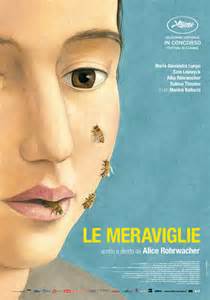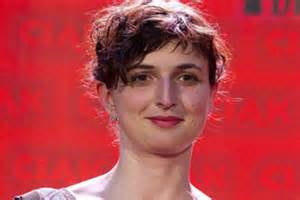
All the winners of the 67th edition were in attendance at the press conference to provide their first impressions. Here are some selected moments from their dialogue with the journalists.
Simon Mesa Soto, winner of the Short Film Palme d’or for Leidi:
“Only four months ago, I was in Colombia shooting this film and now I’m here standing with this award. It’s totally unreal. When you live in a country like Colombia, something happens every day. Numerous aspects regarding Colombia and, more generally, Latin America, have been condensed into the story of this film.”
Marie Amachoukeli, Claire Burger and Samuel Theis, winners of the Caméra d’or for Party Girl:
“We have a long history as friends. We try to do everything together. We consulted each other on every decision made on this film, and the three of us worked through all its phases in order to live a truly human adventure.”
Andrey Zvyagintsev, winner of the Best Screenplay Award for Leviathan:
“It’s a great pleasure. Tonight, however, the absence of Oleg Negin, who co-wrote the film’s screenplay, greatly affects me. We already have other projects in the works, and we’re going to get back to work real soon.”
Alain Sarde, producer of Adieu au Langage (Goodbye to Language), by Jean-Luc Godard, Jury Prize ex-aequo winner:
“Jean-Luc must certainly know that he’s won this prize. I haven’t called him since it’s late, but you obviously know that this prize is not going to revolutionize his world. It’s a regular prize intended for young directors like Xavier Dolan. He is 25, and Jean-Luc is 83. It’s wonderfully symbolic.”
Bennett Miller, winner of the Best Director Award for Foxcatcher:
“Eight years past between the birth of this film’s story and winning this award. We finished it barely two weeks ago. Steve Carell? He’s a remarkable actor and man. Accepting this role was an act of courage for him since no one would think him capable of killing someone.”
Timothy Spall, winner of the Best Actor Award for his role in Mr. Turner:
“I’m so proud. I’ve always been accustomed to not expecting much from my career and playing supporting roles. This leading role was given to me by the producer that I respect the most. We cooperated wonderfully, there exists a chemistry between us. I’m as stunned as a 16 year old kid. I just can’t believe it.”
Xavier Dolan, Jury Prize ex-aequo winner for Mommy:
“With this decision, I recognize the deliberate gesture made by the Jury to associate me and Jean-Luc Godard in cinema due to our search for freedom in two different eras. He attempted to reinvent cinema in an era that he created. I would also like to be associated with such a change in direction. The Jury perceived the sensitivity of both an old and young man, proof that cinema expresses itself through the generations.”
“I feel a little strange to tell the truth, even though winning this award is very nice. “I have won a lot of awards at Cannes, but to take home the Palme d’or, that’s amazing. When I wrote the film’s script, I did so as if I were writing a novel. I realized afterwards that it was too long. The first film was four and a half hours long. I finally shortened it during the editing process. When I make a film, I always try to work from the dark side of my soul. After Once Upon a Time in Anatolia, I felt ready to tell this story”.
Excerpts collected by Benoit Pavan for the Festival of Cannes website

